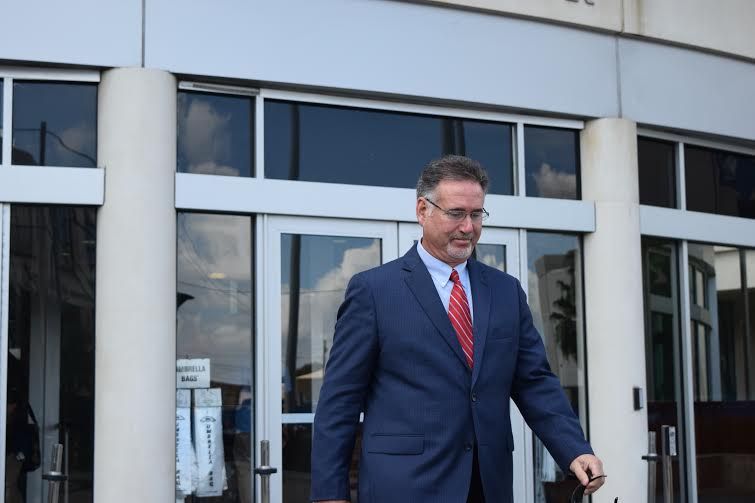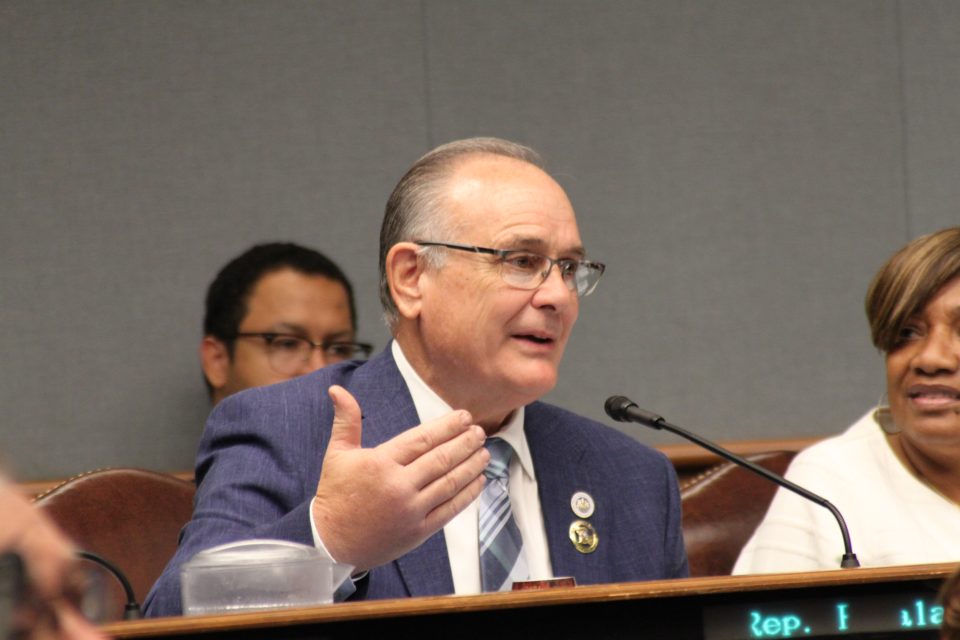Telling time where to go, what to do
October 6, 2015
Judge rules against HTV in defamation case
October 8, 2015One of the year’s more contentious local political races is the 20th Senatorial District campaign, which pits a politically seasoned incumbent against an outspoken oilfield business owner, as well as a newcomer to state campaigns who has previously held office in Lafourche Parish.
State Sen. Norby Chabert (R-Houma) is defending the seat he has held since 2009 against a fellow Republican, pipeline tycoon Mike Fesi and chemical salesman Mark Atzenhoffer, who is running with no party affiliation
The three candidates offer distinct choices to voters in the Terrebonne and Lafourche communities within the district’s boundaries.
Chabert is running on his record of service and the promise of a higher profile in Baton Rouge for Terrebonne and Lafourche, as his seniority increases.
Fesi has strong opinions on the relationship between government and business in what he sees as a critical time in the state’s history.
Both are utilizing traditional and social media and mailings to get their messages across, as well as personal appearances.
Although he has not held public office, Fesi is no stranger to local politics and in the past has run for the office of Terrebonne Parish President.
“I see all the things I think I can accomplish in a lot better ways and expand things and make things a lot better,” Fesi said in an interview, explaining how his business experience and personal philosophy relate to the job he would do in Baton Rouge. “I see the money we are spending on different things when we could be making our parishes more economically sound.”
The state’s approach to coastal erosion and hurricane vulnerability, Fesi maintains, must go beyond the traditional approach of just “damming up our bayous.”
Asked why he has taken on the task of running against an incumbent with strong local roots and a high profile, Fesi said desperate times in the state require change now, not four years from now, when Chabert will likely term-limit out.
“Have you ever tried to sleep in a room with one mosquito?” Fesi said, when asked how it is possible for one lawmaker to make substantive change. “You have got to get up there and negotiate and make changes up and down, over the years re-evaluate and butt heads. You can’t just sit back and make deals.”
Chabert considers himself quite the deal-maker, and is convinced that with the potential of powerful committee chairmanships losing – he is already a member fo the highly influential Finance Committee – he can be in a better position to push local agenda.
The art of the deal is something he watched his father, the late Leonard J. Chabert, parlay into a needed hospital named after him. The elder Chabert’s contribution to local health care for the poor has caused him to be a near-candidate for beatification. If Leonard Chabert was a role model for Norby Chabert then it is his older son, Marty, who is credited by the senator with being a direct tutor.
“It is an art to properly compromise,” Chabert said. “I had seen more of it with my brother. Marty’s four years were very politically formative for me. His freshman year in the Senate he was 34 and I was 16.”
Chabert said he is looking forward to serving under a new governor, and that the departure of Bobby Jindal will allow him and other lawmakers to “take care of some of the things that need to be taken care of, a lot of unsolved problems.”
He is proudest, he said, of the role he played in obtaining money for flood-protection projects underway in the region.
“I was elected to do just that,” he said. “The community was desperate and abandoned and just to look back on it, what we have been able to accomplish is nothing less than extraordinary.”
The personal interest he took in keeping Chabert Medical Center from near-closure, Chabert said, resulting in success, is something he sees as a crowning achievement.
The state’s fiscal woes, and the horse-trading that was required because of it, is something that has created some new problems, particularly in light of attempts to repeal the tax rebate the state gives to owners of marine vessels after they have paid taxes to the parishes wherein their properties are found.
Fesi has criticized Chabert for even considering a repeal of the rebate. Local officials have repeatedly argued against that, citing a tremendous potential impact on their economies.
Elimination of the credit, Fesi maintains, would mean the departure of major businesses from the state to Mississippi.
Chabert has countered that although he voted for a version of the bill in committee, he amended it prior to letting it pass through.
The amendment, Chabert said, mandated that the bill could not pass without introduction of a physical offset to replace the rebate’s beneficial effects.
Fesi maintains that any elimination of the credit would create a disaster.
Another point on which Fesi has been critical of Chabert is the manner in which he has spent his campaign dollars. Buying sports event tickets – which Chabert has given to charities and schools – as well as dinners and major expenses related to fuel were the topic of a mailing that started out the campaign system.
A review of allegations of impropriety from the Fesi camp revealed no known instances where laws were broken.
“When you look at reports of what lobbyists spend on legislators I am not even in the top 10,” Chabert said. “You can’t use campaign contributions for person campaign. How is anything I spent for personal gain?”
High expenses for fuel, Chabert said, are justified by the mileage he racks up as vice-chairman of the Finance Committee, which takes him to places far from the district. Chabert said he would rather spend money from his campaign fund, which he can do legally, than bill taxpayers.
Fesi is for the most part self-financing his campaign. His concern, he said in the interview, was for the contributors to Chabert’s campaign.
“Those allegations are more important to get out to the donors, for them to see how that money is spent. Everybody should know where the money goes,” said Fesi, whose campaign relied on publically available records for its information.
Atzenhoffer is the only one of the two candidates to say that change in the state’s finance laws is needed.
“A campaign account is about a campaign, radio, TV, print, yard signs, not LSU tickets and advertising,” Atzenhoffer said. “We have had a gold standard of ethics reform but the state has gutted the enforcement.” •










